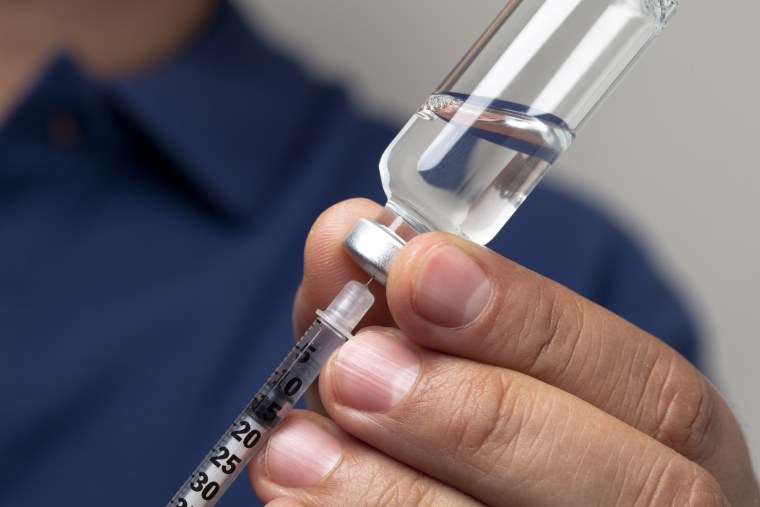A cheap and safe blood pressure drug slows the worsening of Type 1 diabetes, researchers reported Monday.
It’s the first drug that has been shown to affect the course of the disease, also known as juvenile diabetes, which is caused by the body’s mistaken destruction of the pancreatic cells that make insulin.
The treatment is regular injections of insulin. People with Type 1 diabetes must regularly check their blood sugar and administer insulin throughout the day. Uncontrolled blood sugar can damage blood vessels and organs, and can kill people suddenly.
The blood pressure drug, verapamil, appears to protect some of the pancreatic cells that are damaged, allowing them to continue producing a little insulin. It’s not a cure, but adults with newly diagnosed diabetes who took the drug had better control of their blood sugar over time, the team at the University of Alabama at Birmingham reported.
“This will have to be proven in a larger population and also in other age groups. We also would like to extend it to children,” Dr. Anath Shalev, director of the diabetes center at the university, said in an interview.
Verapamil is a drug that lowers blood pressure and in a class called calcium channel blockers. Some doctors had reported that patients who took it to treat blood pressure had a lower risk of developing Type 2 diabetes. Tests in mice showed that it could help preserve the insulin-producing beta cells in the pancreas, and that it could reverse diabetes in some of the animals.
So Shalev's team tried the drug out in a small group of adults newly diagnosed with Type 1 diabetes.
“Although it is often diagnosed in children and young adults, Type 1 diabetes can occur at any age and, in contrast to what was previously thought, many patients retain a small number of functioning beta cells even years after diagnosis,” Shalev’s team wrote in their report, published in Nature Medicine.
The more common Type 2 diabetes is linked with genetic predisposition but can also be associated with poor diet, a lack of exercise and weight gain.
Type 1 diabetes more quickly damages the pancreas and is not linked with lifestyle factors. About 5 percent of the 29 million Americans with diabetes have Type 1 diabetes.
“The natural disease course is a constant, especially in that first year, a pretty rapid decline in beta cell function,” Shalev told NBC News. “Being able to slow that would be a major improvement. Even a small amount of beta cell mass makes a major impact on function.”
The team conducted what’s considered the strongest type of medical study: one in which patients were randomly assigned to either get treatment or a sugar pill, and in which neither the patients nor the doctors treating them knew who was getting which. Eleven volunteers got verapamil pills for a year and whatever insulin they needed, and 13 got insulin and sugar pills.
Both groups got worse and needed more insulin as the year went on. But the patients who got verapamil needed much less insulin. Verapamil patients needed only 27 percent more insulin by the end of the year compared with the start of the year, while the patients who got placebo pills needed 70 percent more.
“In addition, verapamil treatment was well tolerated, was not associated with any clinically significant adverse events and seemed to be effective even when added by itself to a standard insulin regimen,” the team wrote.
The findings suggest that verapamil helps stop the ongoing damage to the pancreas caused by Type 1 diabetes, Shalev said.
That's probably because the drug directly affects cells in the pancreas, she added. Beta cells, which produce insulin in the pancreas, have the same structures, called calcium channel receptors, that heart cells do.
Because Type 1 diabetes is believed to be caused by immune system mistakes, some researchers are testing immune-suppressing drugs to try to treat it — something that can raise the risk of infections and cancer.
Other groups are trying transplants of the pancreatic cells that produce insulin, but only a small number of patients can get this treatment because of a shortage of donors. The benefits may also not be permanent.
"We are always looking for drugs or therapies that will alter the course of Type 1 diabetes and protect or bring back the insulin producing beta cells," said Andrew Rakeman of JDRF, the diabetes research and advocacy organization that helped fund the study.
"We are very excited about the results from Dr. Shalev’s team showing that reducing stress in the beta cells with verapamil can slow down progression of Type 1 diabetes."



